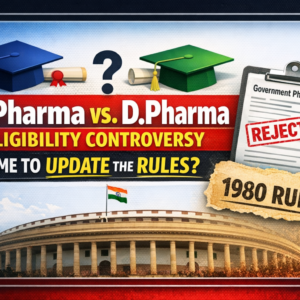A medical writer is a professional who specializes in creating a variety of written materials related to medicine and healthcare. These professionals play a crucial role in the pharmaceutical, biotechnology, and medical device industries, as well as in academic and research institutions.

The primary responsibility of a medical writer is to communicate complex scientific and medical information in a clear, concise, and accurate manner. They are skilled at translating technical and clinical data into various types of documents that are easily understood by different audiences, including healthcare professionals, regulatory agencies, patients, and the general public.
Importance of Medical Writing
Medical writing is of great importance in the field of healthcare and medicine for several reasons:
1. Clear communication of complex information: Medical writing involves translating complex scientific and medical information into clear and understandable language. This is crucial for effective communication among healthcare professionals, researchers, regulatory authorities, patients, and the general public. Clear and concise writing helps to convey important concepts, research findings, and safety information accurately.
2. Regulatory compliance: Medical writers play a key role in ensuring compliance with regulatory requirements. They are responsible for preparing regulatory documents, such as clinical study protocols, investigator brochures, and regulatory submissions. These documents are essential for obtaining approvals from regulatory authorities for new drugs, medical devices, and treatments.
3. Dissemination of research findings: Medical writers contribute to the publication of research findings in scientific journals. By preparing manuscripts, they help researchers share their work with the scientific community, advancing medical knowledge. Properly written articles are critical for peer review, replication, and building upon existing research.
4. Patient education and empowerment: Medical writers create educational materials for patients, providing them with accurate and reliable information about diseases, treatment options, and medication usage. Clear and accessible patient education materials can help patients make informed decisions about their health and actively participate in their own care.
5. Clinical trial documentation: Medical writers are involved in the development of essential clinical trial documents, such as informed consent forms and clinical study reports. These documents ensure that participants are well-informed about the study procedures, potential risks, and benefits. Additionally, well-written clinical study reports provide a comprehensive summary of trial data and findings, supporting evidence-based medicine.
6. Marketing and promotional materials: Medical writers contribute to the development of marketing and promotional materials for pharmaceutical companies and medical device manufacturers. They ensure that the content accurately represents the product, adheres to regulations and guidelines, and effectively communicates its benefits and risks to healthcare professionals and consumers.
7. Risk minimization: By accurately documenting and communicating safety information, medical writers help to minimize the risks associated with the use of medications and medical devices. Clear and comprehensive product labeling, package inserts, and safety communications aid healthcare professionals in understanding and managing potential adverse events.
Types of Medical Writing
There are several types of medical writing, each serving a specific purpose and target audience. Some common types of medical writing include:
1. Clinical trial documents: These include the development of various documents necessary for conducting clinical trials, such as clinical study protocols, informed consent forms, case report forms, and clinical study reports. These documents outline the objectives, methodology, and results of clinical trials.
2. Regulatory writing: This type of medical writing involves preparing regulatory submissions and documents required for obtaining approvals from regulatory authorities. Examples include investigational new drug applications (INDs), new drug applications (NDAs), marketing authorization applications (MAAs), and safety reports.
3. Scientific publications: Medical writers collaborate with researchers and scientists to prepare manuscripts for publication in scientific journals. This includes writing original research articles, review articles, case reports, and systematic reviews. These publications contribute to the dissemination of research findings and the advancement of medical knowledge.
4. Medical education materials: Medical writers develop educational materials aimed at healthcare professionals, patients, and sales representatives. These materials include slide presentations, training manuals, patient leaflets, and educational websites. The goal is to provide accurate and up-to-date medical information and support continuous medical education.
5. Marketing and promotional materials: Medical writers contribute to the development of marketing materials for pharmaceutical companies, medical device manufacturers, and healthcare organizations. This may include product monographs, brochures, sales aids, websites, and social media content. These materials aim to effectively communicate the features, benefits, and risks of medical products to healthcare professionals and consumers.
6. Medical journalism: Medical writers may work as journalists or health reporters, covering medical and healthcare news. They write articles for newspapers, magazines, online publications, and health-related websites. These articles provide accurate and accessible information to the general public about medical breakthroughs, treatments, and health-related topics.
7. Continuing medical education (CME): Medical writers develop educational content for CME programs, which are designed to help healthcare professionals maintain and enhance their knowledge and skills. This includes writing CME modules, interactive case studies, and assessments.
8. Medical communication and marketing agencies: Medical writers may work for medical communication agencies that provide writing services to pharmaceutical companies, CROs, and healthcare organizations. They are involved in various types of medical writing projects, including medical communications, medical affairs support, and publication planning.
Career Opportunities as Medical Writer Professional
A career as a medical writer offers a wide range of opportunities in various sectors within the healthcare and pharmaceutical industries. Some of the career opportunities available to medical writers include:
1. Pharmaceutical companies: Many pharmaceutical companies employ medical writers to support their research and development efforts. Medical writers in pharmaceutical companies are involved in writing clinical trial documents, regulatory submissions, product monographs, and marketing materials.
2. Contract research organizations (CROs): CROs provide outsourced services to pharmaceutical and biotechnology companies. Medical writers in CROs play a crucial role in preparing clinical trial documents, regulatory submissions, and scientific publications. They may also be involved in data analysis and medical communications.
3. Medical communication agencies: Medical communication agencies specialize in creating scientific and medical content for various purposes. Medical writers in these agencies work on projects such as developing educational materials, writing scientific manuscripts, creating promotional materials, and providing medical writing support to clients.
4. Regulatory affairs: Medical writers with a strong understanding of regulatory guidelines and requirements can pursue a career in regulatory affairs. They can contribute to the preparation of regulatory submissions, safety reports, and labeling documents, ensuring compliance with regulations and guidelines.
5. Medical journalism and writing for media: Some medical writers choose to work as journalists or health writers, covering medical and health-related news for newspapers, magazines, online publications, and health websites. They provide accurate and accessible information to the general public on medical breakthroughs, treatments, and health-related topics.
6. Academic and research institutions: Medical writers can work in academic and research settings, collaborating with researchers, scientists, and clinicians to prepare research manuscripts, grant proposals, and scientific presentations. They may also be involved in medical education and curriculum development.
7. Freelance and consulting: Many medical writers work as freelancers or consultants, offering their services to clients on a project basis. This provides flexibility and the opportunity to work on a variety of projects for different organizations.
Roles and Responsibilities of a Medical Writer
The roles and responsibilities of a medical writer can vary depending on the specific industry, organization, and project. However, the core responsibilities of a medical writer typically include:
1. Writing and editing: The primary responsibility of a medical writer is to write and edit various types of documents related to healthcare and medicine. This includes creating clear, accurate, and concise content for clinical trial documents, regulatory submissions, scientific manuscripts, educational materials, marketing materials, and more.
2. Research and data analysis: Medical writers often need to conduct extensive research on scientific and medical topics to gather relevant information for their writing projects. They may review scientific literature, clinical trial data, regulatory guidelines, and other reliable sources. They also analyze and interpret data to ensure accurate representation of research findings.
3. Document development: Medical writers are involved in the development and preparation of various documents throughout different stages of a project. This includes writing study protocols, informed consent forms, investigator brochures, clinical study reports, regulatory submissions, safety reports, and more. They are responsible for ensuring that these documents adhere to regulatory requirements, industry standards, and specific guidelines.
4. Collaboration with subject matter experts: Medical writers collaborate closely with subject matter experts, such as researchers, physicians, regulatory affairs specialists, and marketing professionals. They engage in discussions, interviews, and meetings to gather information and clarify scientific and medical concepts. This collaboration ensures that the content accurately represents the expertise and perspectives of the stakeholders involved.
5. Compliance with regulations and guidelines: Medical writers must adhere to relevant regulations and guidelines specific to their industry. This includes complying with Good Clinical Practice (GCP) guidelines for clinical trial documents, following International Council for Harmonisation of Technical Requirements for Pharmaceuticals for Human Use (ICH) guidelines for regulatory submissions, and adhering to journal guidelines for scientific manuscripts. They are responsible for ensuring that the content meets ethical, scientific, and regulatory standards.
6. Quality control and review: Medical writers are responsible for conducting thorough quality control checks on their written materials. They review their work for accuracy, clarity, grammar, and consistency. They also ensure that the content is free from plagiarism and adheres to the organization’s style guide and branding guidelines. In some cases, they may collaborate with editors or subject matter experts for peer review and feedback.
7. Keeping up with industry trends and guidelines: Medical writers need to stay updated with the latest scientific advancements, regulatory changes, and industry guidelines. They continuously acquire knowledge and skills through reading scientific literature, attending conferences, participating in professional development activities, and engaging in professional networks.
Demand of Medical Writer in India
The demand for medical writers in India has been steadily increasing in recent years. Several factors contribute to this growing demand:
1. Pharmaceutical and biotechnology industry growth: India has a robust pharmaceutical and biotechnology industry, with many domestic and multinational companies conducting research and development activities. As these companies develop new drugs, medical devices, and treatments, there is a need for skilled medical writers to create clinical trial documents, regulatory submissions, and other related materials.
2. Outsourcing of medical writing services: Indian companies are increasingly providing medical writing services to global pharmaceutical and biotech companies. This trend is driven by cost advantages, English language proficiency, and the availability of a skilled workforce in India. As a result, there is a growing demand for medical writers to meet the outsourcing needs of international clients.
3. Regulatory compliance requirements: Regulatory authorities, both in India and globally, have stringent requirements for clinical trial documentation and regulatory submissions. Medical writers play a crucial role in ensuring compliance with these requirements. The demand for skilled medical writers has increased as companies strive to meet regulatory standards.
4. Focus on scientific research and publications: India has a vibrant scientific research community, with a significant number of research publications originating from Indian institutions. Medical writers are in demand to collaborate with researchers and scientists to prepare research manuscripts for publication in scientific journals. This demand is driven by the need for accurate and high-quality scientific communication.
5. Medical communication and marketing needs: The need for effective medical communication and marketing materials is growing in India’s healthcare industry. Medical writers are required to develop educational materials, marketing collateral, and digital content that effectively communicate medical information to healthcare professionals and patients.
6. Increasing clinical trial activity: India has become a preferred destination for clinical trials due to a large patient population and a supportive regulatory environment. Medical writers are needed to create and manage clinical trial documents, including protocols, informed consent forms, and study reports.
Average Salary of a Medical Writer in India
1. The average salary of a medical writer in India can vary based on factors such as experience, education, location, industry, and the specific role and responsibilities. Salaries can also differ between companies and sectors within the healthcare and pharmaceutical industry.
2. As of my knowledge cutoff in September 2021, the average salary range for a medical writer in India is approximately INR 3,00,000 to INR 8,00,000 per annum. However, it is important to note that these figures are estimates and can vary significantly depending on the aforementioned factors.
3. Entry-level medical writers with limited experience may start with a lower salary, typically around INR 3,00,000 to INR 4,50,000 per annum. As they gain experience and expertise, their salary can increase, and mid-level medical writers can expect salaries ranging from INR 5,00,000 to INR 8,00,000 per annum.
4. Senior medical writers with several years of experience, advanced degrees, and specialized skills may earn higher salaries, ranging from INR 8,00,000 to INR 15,00,000 per annum or more.
5. It is important to keep in mind that these figures are indicative and can vary depending on the specific circumstances and market conditions. Salaries can also be influenced by factors such as the company’s size, location (metros tend to offer higher salaries), industry segment, and demand for medical writing services at a given time.
6. Furthermore, freelance medical writers may charge on a project basis and their rates can vary depending on their expertise and the nature of the project.
Job Opportunities in Indian Companies
Indian companies in the healthcare and pharmaceutical industry offer various job opportunities for medical writers. Some of the prominent Indian companies that may have job openings for medical writers include:
1. Pharmaceutical Companies: Major Indian pharmaceutical companies like Sun Pharmaceutical Industries, Dr. Reddy’s Laboratories, Cipla, Lupin, Cadila Healthcare, and Biocon often have medical writing positions available. These companies engage in research and development, manufacturing, and marketing of pharmaceutical products, creating a demand for medical writers to support their activities.
2. Contract Research Organizations (CROs): Indian CROs, such as Syngene International, QuintilesIMS (now known as IQVIA), Siro Clinpharm, and GVK Biosciences, provide outsourced services for clinical research and development. These organizations require medical writers to contribute to clinical trial documentation, regulatory submissions, and scientific communications.
3. Medical Communication Agencies: Medical communication agencies in India, such as Indegene, MakroCare, Tata Elxsi, and Sciformix (now known as Covance Market Access Services), offer medical writing services to global pharmaceutical companies. These agencies provide opportunities for medical writers to work on diverse projects, including medical education materials, scientific publications, and regulatory documents.
4. Research and Academic Institutions: India has several renowned research institutes and academic institutions that engage in medical and scientific research. Institutions like the All India Institute of Medical Sciences (AIIMS), Indian Council of Medical Research (ICMR), Tata Memorial Centre, and Indian Institute of Science (IISc) may have medical writing positions available for individuals with strong research and writing skills.
5. Clinical Research Organizations: Companies specializing in clinical research services, such as Synchron Research Services, CliniRx Research, and Ecron Acunova, often require medical writers to contribute to clinical trial documentation, study protocols, and regulatory submissions.
6. Regulatory Affairs: Regulatory affairs departments in pharmaceutical companies and CROs hire medical writers to assist with the preparation of regulatory submissions, safety reports, and other documents required for compliance with regulatory guidelines.
<<<<<<<<<<<<< MUST READ >>>>>>>>>>>>>>
| Scope of Pharmacovigilance: Career, Role, and Future Prospects | Read |
| Inside the World of Drug Regulatory Affairs: Key Insights and Responsibilities | Read |
<<<<<<<<<<<<<JOIN US>>>>>>>>>>>>>>>>
| Subscribe our PHARMACY INDIA Youtube Channel for more Pharma Updates | Click Here |
| Follow us on Instagram | Click Here |
| Download PHARMACY INDIA MOBILE APP from Google Play Store | Click Here |
| Follow us on LinkedIn | Click Here |






